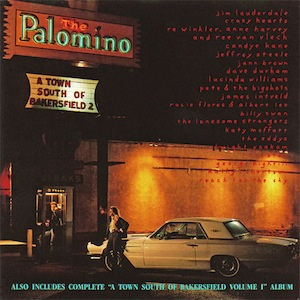 Honey Ltd. – The Complete LHI Recordings CD (Light In The Attic, 2013)
Honey Ltd. – The Complete LHI Recordings CD (Light In The Attic, 2013)
Thee reissue of the epoch – or at least my epoch. I tell myself I may well have played some tiny part in seeing this come to fruition, but maybe that’s hubris. Anyway let’s try to remember . . .
A quarter century ago, my younger self made a conscious choice to step away from the punker sounds that had shaped my even-younger self, and I began testing the kaliedoscoptic musical waters known as 60’s psych. Subsequently I was given a cassette dupe of the lone HONEY LTD. LP on Lee Hazelwood Industries Records from 1968, courtesy of pal Roy Kaiser, proprietor of The Record Recycler in Torrance. He owned a copy of this mega-rarity back when even gristled psych collectors weren’t sure what the heck it was, and has sung praise for it longer than many of you have been alive. Gradually, that cassette became a staple of my regular musical diet, becoming the gateway drug that led to sublime baroque & sunshine pop pastures by the likes of THE LEFT BANKE, THE FREE DESIGN, and STRAWBERRY ALARM CLOCK.
I remember being struck by how HONEY LTD. wasn’t anything like the wildass gtr jamming or trippy experimentalism I’d come love about many of that era’s LSD-inspired bands. Rather it was suavely arranged, 4-part gal harmony flower pop, lushly produced with a number of Wrecking Crew folks, with a strident urgency to the vocals that only white people attempting to get down! could muster. They were closer to a living, breathing CARRIE NATIONS than anything actually psychedelic, except with Lee Hazelwood not Russ Meyer in the director’s chair. But songs like “The Warrior”, “Silk ‘N Honey” and “Tomorrow Your Heart” were strikingly original, truly great in fact – the kind you find yourself humming along to well after they ended. And the non-album 45 moved off into more soulful terrain, suggesting they might’ve beat THREE DOG NIGHT at their game, had they stuck it out another few months.
Fast forward to the end of 90’s . . . I made a second-gen. dupe of my cassette for pal and erudite collector Jonathan Ward. So taken by what he heard, Wardo embarked on an archeological dig for all things HONEY LTD., culminating in a fascinating historical retrospective for online mag Perfect Sound Forever in 2005. This brought the story of this lost band to a whole new audience – including the Light In The Attic crew, perhaps? Sadly, most of the recordings remained elusive at the time. Wardo would go on to found the amazing Excavated Shellac blog and become the preeminent name in 78 rpm relics the world over, but I still smile knowing he used to drool over this sorta gal-pop too.
So now it’s 2013, and Light In The Attic has finally exhumed everything HONEY LTD. ever recorded, housed it in a beautiful digipack, included a 32 page booklet detailing their story all over again, and thrown in a cool sticker to boot. It’s all so wonderful I could just about cry – heck, I might never have to listen to that shitty cassette again. Yes the 3 unreleased tracks are a treat, but it’s the album itself that’s the main course. And what a course it remains: equal parts gorgeously produced soul/pop, doe-eyed flowerchild naivety, and loud harmonic transcendence, I’d recommend this above a dozen supposed-classic Brian Wilson records. Really, it just does not get any better than this.






